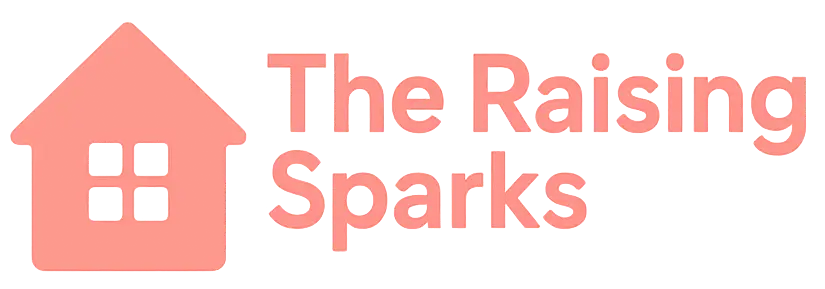You ever walk into a room meaning to tidy up? Then five seconds later you’re frozen, mentally screaming, “Nope, not today”?
Yeah. Me too.
Don’t forget to save this pin for later! You’ll want to come back to these insights when you need them most.
Clutter and ADHD are like two chaotic besties feeding off each other. They’re loud, demanding, and absolutely exhausting.
One makes the other worse. Before you know it, you’re stuck in a loop that just keeps repeating.
But here’s the thing: once you understand why this loop exists, you can start stepping out of it.
No shame here. No pressure to become some minimalist Pinterest goddess.
Just some real talk, a little compassion, and practical shifts that make a big difference. Even if your kid or spouse also has ADHD (yup, these tips work for the whole ADHD household).
Let’s dive into the 19 truths about why ADHD and clutter feed off each other. Plus what we can actually do to break that cycle.
1. Clutter Overstimulates the ADHD Brain
Too much visual input equals brain overload. Every single item screams for your attention.
Suddenly you can’t focus on anything at all.
2. Decisions Feel Like A Full-Time Job
Decluttering means making decisions. Keep it? Toss it? Donate it?
For ADHD brains already struggling with decision fatigue, it’s completely paralyzing.
3. More Stuff = More Lost Things
Simple math here. The more stuff you have, the harder it is to find what you actually need.
Nothing sends me into a spiral faster than lost keys when I’m already running late.
4. Time Disappears Into the Mess
ADHD plus clutter equals losing time. You’re searching, getting distracted, starting five things but finishing none.
It’s not laziness. It’s just reality.
5. Too Much = Instant Overwhelm
I don’t care if it’s just a junk drawer. If there’s too much happening, my brain completely nopes out.
It’s like every single item has an emotional weight attached to it.
6. Mess Messes with Your Mood
There’s actual research backing this up. Clutter increases anxiety and makes emotional regulation harder.
For ADHD brains, that’s already tough enough as it is.
7. No Control = No Peace
When your space is a disaster, everything feels like it’s spiraling. Organized rooms create a sense of calm.
Don’t we all need a little more calm in our lives?
8. Impulsive Shopping Adds Fuel to the Fire
Late-night online shopping, anyone? ADHD impulsivity loves adding random stuff to our homes.
The clutter builds way faster than we can deal with it.
9. Letting Go is Hard (Emotionally and Logically)
We attach stories to our stuff. “What if I need it someday? What if it was expensive?”
ADHD brains overthink every single decision, then freeze up completely.
10. Mental Clutter Mirrors Physical Clutter
My brain feels exactly how my kitchen looks. If there’s stuff everywhere, my thoughts are just as scrambled.
The connection is real and immediate.
11. We Leave Things Out to Remember Them
Which is actually pretty smart… until those piles become pure noise.
There’s a fine line between visual reminders and complete visual chaos.
12. Complex Systems = Abandoned Systems
If it takes five steps to put socks away, I’m never doing it. Period.
ADHD brains need simple systems that don’t require mental gymnastics.
13. Comparison Makes It Worse
Looking at perfectly color-coded pantries on Instagram? Hard pass.
When you’re already struggling, those polished systems just feel defeating.
14. Clutter Feeds Emotional Paralysis
The worse it gets, the harder it becomes to start. The shame creeps in slowly.
The pressure builds up. And then nothing happens at all.
15. No Habits = Constant Resetting
Without solid routines, everything falls apart daily. Systems help with organization.
But habits are what keep those systems actually running.
16. You Can’t Enjoy a Space That Stresses You Out
When a room makes you feel terrible every time you walk in, you avoid it completely.
Your home becomes less of a refuge and more of a heavy weight.
17. One ADHD Brain Affects the Whole House
If your kid has ADHD too (or your partner), their clutter habits pile onto yours.
But these truths apply to them as well. You’re definitely not alone in this.
18. Out of Sight = Out of Mind
If I can’t see it, I literally forget it exists. That’s why open bins, clear labels, and visual cues are crucial.
Visibility equals usability for ADHD brains.
19. Maintaining Clutter is Energy-Draining
It’s absolutely exhausting to keep shuffling stuff around without any real system.
Clearing clutter frees up more than just space. It gives you back precious mental energy.
So Now What? Here’s What Actually Helped Me:
Start ridiculously small. One drawer, one shelf, one tiny zone. Let that momentum build naturally.
Make it stupid easy to put things away. Not perfect. Just easy.
Own way less stuff. If you don’t love it or actively use it, it’s probably taking more than it gives back.
Keep donation boxes going year-round. Stick one in a closet somewhere. Drop stuff in whenever the mood strikes.
Build tiny, manageable routines. Clear bathroom counters each morning. Do a 10-minute tidy after dinner. These small things really stack up.
Label absolutely everything. For your brain. For your kids. For your collective sanity.
Skip the fancy systems. Keep it real and sustainable. Pinterest pretty doesn’t actually last.
Final Thoughts
If you’re reading this because ADHD and clutter are totally tag-teaming you right now, know this: you’re not lazy.
You’re not failing at life. Your brain just works differently than neurotypical brains.
These tips aren’t just for you. They’ll help your kids, your partner, your whole home feel calmer and way more manageable.
You don’t need to change everything overnight. Just pick one truth, one small tweak, one place to start.
That’s literally it.
You deserve a home that helps you breathe again. Not someday in the future when you “get it together.”
Starting right now.
💛 You got this.
